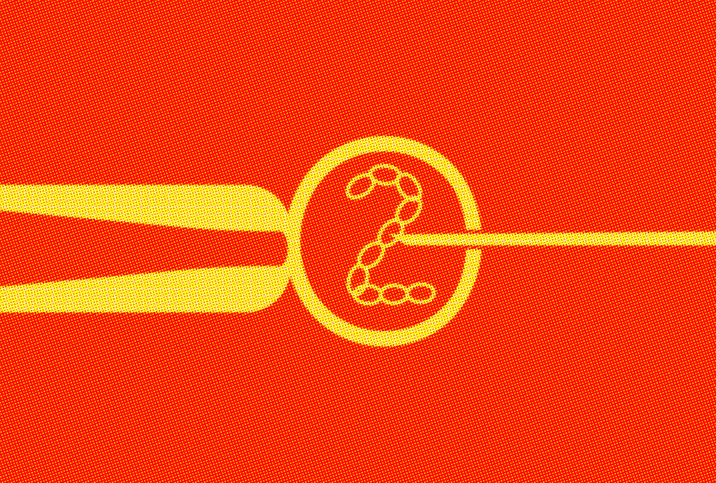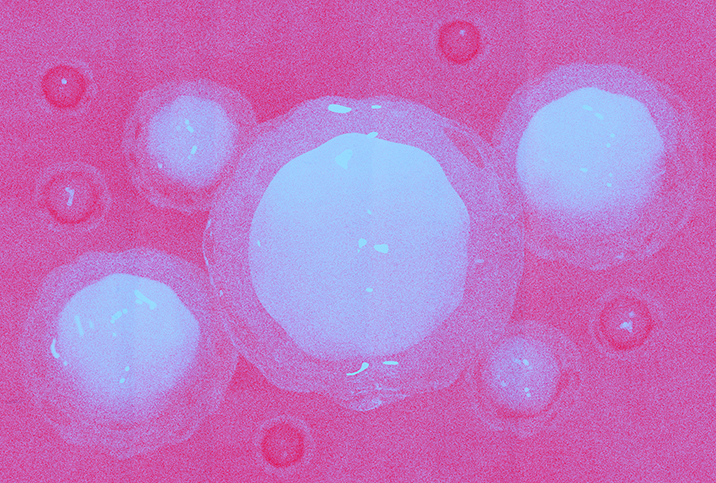How IVF Can Affect Your Mental Health

If you are considering or are already in the process of in vitro fertilization (IVF), you might be curious about how this fertility treatment can affect your mental health.
How can IVF affect your mental health?
Patients with infertility tend to be more depressed. People who learn they are infertile have been shown to have similar levels of stress and anxiety as patients receiving a cancer diagnosis. Infertility can lead to extreme guilt and low self-esteem, said Jennifer Kulp Makarov, M.D., a board-certified OB-GYN at New Hope Fertility in New York City.
Makarov cited a study that observed couples going through infertility treatment. The study indicated 56 percent of women and 32 percent of men have symptoms of depression, and 76 percent of women and 61 percent of men have symptoms of anxiety.
Women who experience failed fertility treatments are six times more likely to display signs of PTSD, according to a 2012 dissertation by Allyson Bradow, Psy.D., titled, "Primary and Secondary Infertility and Post-Traumatic Stress Disorder." Bradow discovered 56.5 percent of women and 32.1 percent of men who struggled with fertility scored in the clinical range of depressive symptoms, while 75.9 percent of women and 60.6 percent of men scored in the clinical range of anxiety symptoms.
How can IVF cause depression?
"Symptoms of depression can be triggered by isolation, self-blame, hormones, relationship problems, financial stress and prolonged grief," said Linda Kondilis, Ph.D., a psychologist and owner of Orama Wellness in Atlanta. "These are all obstacles patients can face when undergoing IVF, especially when they undergo fertility treatment for years, which is common.
"Isolation while going through fertility treatment can be summed up with a term called 'disenfranchised grief,'" she said. "Disenfranchised grief is the type of grief not seen and, therefore, not supported by your community. [This] lack of validation during fertility treatment is linked to their emotional well-being."
Depression during the IVF process is more common when fertility treatments are unsuccessful.
"There's a lot of pressure on couples going through IVF, mixed with the shame and guilt they feel from having infertility. So this creates an emotionally stressful environment," Makarov said.
Additionally, a rise in estrogen can make some patients feel more emotional, said Karenne Fru, M.D., a fertility specialist at Oma Fertility in Atlanta. The process of IVF often involves raising estrogen levels higher than they naturally rise during a menstrual cycle.
The stress of IVF
IVF can be an overall stressful process due to the required investment of time, money and energy, plus the uncertainty of whether it will work, which can make patients feel fear and a general lack of control. Undergoing IVF often leads to a reconfiguration of the patient's life due to cycling, doctor's appointments, medication, plus changes in activity level, sleep, appetite and social engagement, Kondilis explained.
"Many people feel as though their life is being put on hold while they watch others move through different life experiences and phases," Kondilis said. "Most of my patients are asking for help because they do not know how to manage the pressure and expectations from friends and family. Stress is triggered by internal evaluation of self, for example, 'Who am I and what is my value if I cannot have children?'"
An element of grief also affects some patients who have infertility and are undergoing IVF, because this is not how they envisioned establishing or expanding their family.
"If grief goes unaddressed, it may proceed to depression," Fru said.
Should I do IVF if I have a mental health condition?
"If a preexisting mental health condition exists, it is important to consider transitioning to a therapist who has a focus in reproduction, [which] is a different kind of stressor," Fru said. "No changes in medication should be made without talking to a doctor as oftentimes the risk of being unmedicated are greater than the potential risk to an unborn child."
"It's important to note the medication and protocols used during IVF can be modified if you do have mood symptoms or mood side effects from the medication," Makarov suggested. "So if you're feeling your mental health is worsening when you're on IVF medication, you should definitely discuss this with your physician to discuss any changes which could be made in the medication, so you can feel better."
The hormones used during IVF can affect your mood, but how IVF affects an individual varies. There are IVF treatments that use fewer added hormones, such as mini IVF, as well as natural IVF, which uses the hormones your body produces during your cycle, Makarov explained.
How to approach IVF with a mental health condition
You can take a few steps to protect your mental health when undergoing IVF. Kondilis suggested working with a psychiatrist who is familiar with fertility treatment to manage your psychiatric medication, or working with a therapist who's trained in fertility counseling and understands trauma-informed care.
"Your previous coping strategies for your mental health challenges may not stand up to IVF, and that is OK," Kondilis said. "You can learn new ways of coping. One of the biggest emotions you are likely to face is fear. Plan on the many ways you will address fear when it shows up. This includes managing fear leading up to treatment, having the treatment itself and waiting for results. If IVF is not successful, fear is likely to show up in between and during your treatment phases."
Find a support system
"Protecting [your] mental health during IVF involves an intentional, team-based approach," Fru suggested. "I recommend early recognition that this process may be mentally taxing. [Create] rituals which provide comfort and encourage participation by both the patient and their primary support, for example, pairing injections with a foot rub or hot cocoa nightly."
Avoid high-stress situations
Since your stress levels are likely already high going through the IVF process, it's important to try to avoid additional stress from other parts of your life.
"It's a good idea when you're undergoing IVF treatment to do it at the time when other life events are at the lowest stress time, so avoiding high-stress work situations and big life changes, such as a move or job change, while you're undergoing an IVF cycle," Makarov explained.
Accept stress does not go away once you're pregnant
It's important to accept that while stress can be triggered during IVF, it likely won't magically disappear once you are pregnant.
"In fact, just because infertility is resolved does not mean the anxiety goes away," Fru said. "This leaves the couple susceptible to higher rates of postpartum depression, and coupled with the feeling that they should be doing well because it was a highly sought-after pregnancy, lower rates of seeking out help to deal with it."
Acknowledge how stress can affect your partner, too
While IVF can be stressful to you, it's important to acknowledge how this process is affecting your partner.
"I think some misconceptions about mental health and IVF are [that] only the female partner feels stress, when in fact, we see high levels of depression and anxiety also in the male partner. It's important for them to acknowledge and address those levels of stress and anxiety as well," Makarov said.
You can take a break
If the process of IVF takes too much of a toll on you and your mental health, you should know you can always take a break.
"A big misconception is if you stop and take a break from IVF that you have given up," Kondilis said. "Many of my patients need a break to restore themselves before continuing IVF. It does not mean you have given up; it means you need time away from the process, and for many, it helps them return to treatment."


















